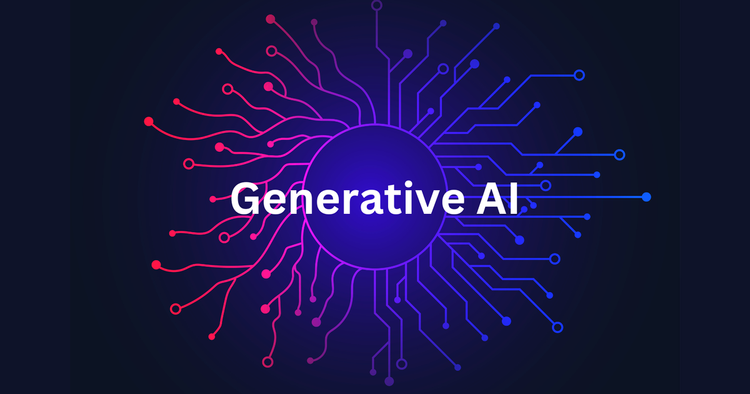Google's AI Overviews: What is it and Why it's Trending

Eat rocks at least once a day? Add non-toxic glue to your pizza to retain the cheese? Google has been a hot topic on social media in recent days thanks to the bizarre answers of its new product: AI Overviews. AI Overviews is one of Google's three latest products, part of its strategy to level up its presence in the AI industry. But based on some recent reports and funny posts of some social media users, Google's AI Overviews is off to a rocky start.
Last May 15th, at the Google I/O developer event, the company showed off the latest developments in its artificial lineup, which includes AI Overviews, an initiative called Project Astra, and updates to its Gemini chatbot. Gemini Live is a conversation-driven service similar to the recently announced GPT-40 and boasts impressive voice and video capabilities.
Project Astra, on the other hand, looks like another chatbot but offers more functionality. This Google project boasts multi-modal functionality since it can combine text, images, video, and audio, which is fast and conversational. In Google's words, they see Project Astra as a "universal AI agent" that can do and understand everything. Of these three new projects, Google's AI Overviews generated some buzz and attention, mostly negative and humorous.
Social media users wasted no time commenting on Google's latest product. Apparently, a user looking for help getting cheese to stick on pizza was told to add glue. Many users say the information was lifted from an old Reddit post. Also, someone was told to eat small rocks daily as part, which was sourced from The Onion. Now, you'll be disappointed if you're interested in asking questions to test how good (or bad) the initial launch of AI Overviews is or searching for these viral answers.
According to reports, Google is working overtime to remove these inaccurate results. In a company statement, it shared that they're taking "swift action", and their using these examples to improve their new product further. We also tried searching for some images of these errors and "questionable answers" from AI Overviews, but these are no longer available online. Most images and screenshots have been removed in search, indicating a move by Google to address the embarrassment.
What is AI Overviews?
AI Overviews is a new spin on Google Search by offering internet users with another way to generate information online. This service becomes available and you get an AI-generated summary of the results if you search for "complex queries".
According to Mallory De Leon, Google's spokesperson, a user can access AI Overviews if the search system determines that generative AI can be helpful in explaining or delivering the information. Also, the service becomes helpful if the user wants to quickly understand information from a range of sources.
In our initial test of AI Overviews, it seems that the service pops out at random. For example, while researching for "Sabalenka as favorite for Wimbledon 2024", the AI assistant appeared at the right side of the Google's search bar, and instantly provided a list of three reasons why Sabalenka is a contender for the Wimbledon crown this year. In short, AI Overviews have become helpful for us in getting concise and correct background on the player through the service's brief summary.
According to Google, AI Overview is powered by a customized version of the company's Gemini model, and supplemented by Knowledge Graph that boasts billions of general facts. Initially, the service was launched in the United States. And according to Liz Reid, AI Overviews will become available outside of the US before the end of 2024.
Google admits the flub and focuses on improving the service

Initially, Google downplayed the issues surrounding its AI Overviews. But a few days ago, Google's head of search, Liz Reud, admitted that these problematic answers highlighted areas that require improvement. She shared that the company "wanted to explain what happened and the steps we've taken". Reid directly referenced the most viral and wildly incorrect answers from AI Overviews, the one suggesting eating rocks and the recommendation to use a non-toxic glue to hold and thicken the sauce.
On the rock-eating recommendation, Reid said that the AI tool lifted the answer from an article from The Onion, a well-known satirical website. It's safe to say that rock eating isn't a topic most people will ask online, so there aren't many sources available for the AI assistant to use. And on the use of glue on pizza, Reid pointed to the lack of a sense of humor.
Reid also defended the company over the recent attacks from trolls and even fake news peddlers. She mentioned judging Google's new product based on viral screenshots would be unfair. Google did extensive testing of AI Overviews before its launch, and based on their internal data, people value this new product.
So, what can Google say about these embarrassing failures?
There are plenty of reasons why Google's new product has trended the wrong way. Reid attributed these questionable answers to millions of users who used the feature to ask novel questions. She added that there were a few nonsensical searches, which was aimed to produce problematic answers. Also, Google stated that some of these viral screenshots of AI Overviews were fake. For example, one user on X posted a screenshot that appeared to look like Google's AI Overview answering the question: "Can a cockroach live in your penis?" This viral X post has been viewed over 5 million times, and was one of the reasons why Google's new product has gone viral. But upon further inspection, it was found out that the format of the screenshot is different with how AI Overviews are presented to readers.
What lies ahead for Google's AI Overviews?
Google's AI Overviews continues the trend among tech companies to invest in AI technology, and make it more accessible to people. Like ChatGPT and X's Grok, AI Overviews can help internet users find information in a quick and convenient manner.
But while these services are designed to save us time, they might lead us to less trustworthy results. So, it will be interesting to see what Google will do after acknowledging the recent blunders of its new product. Let's wait, and see if indeed Google can improve its delivery of information to users in search of knowledge online.


